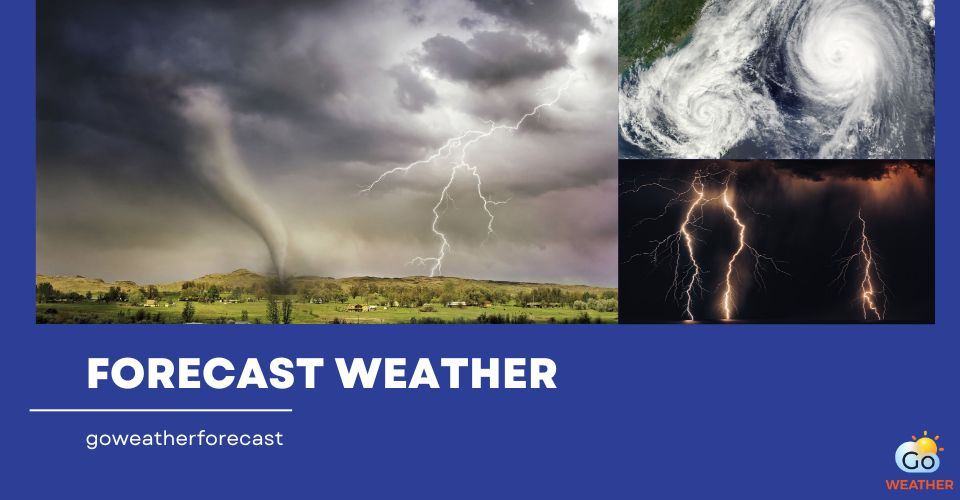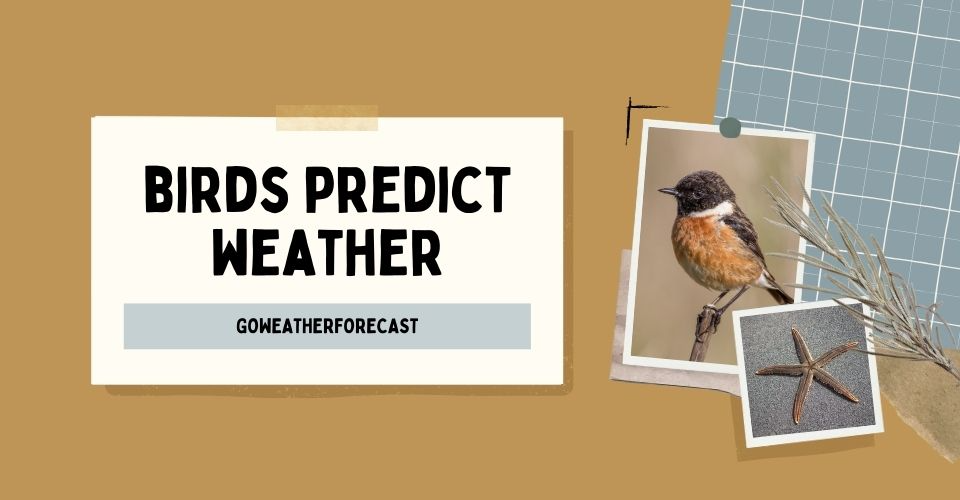Can Animals Predict the Weather? 9 Fun Facts about Weather Prediction
.jpg)
Can some animals predict the weather?
Can Animals Predict the Weather?
Animal behaviors have been long observed for weather changes. They react to weather changes in many different ways. We can observe their reactions to predict extreme weather conditions.
However, what’s to come has still been a myth to scientists. Is it an increase or decrease in atmospheric pressure, a reaction to the electromagnetic force, or even a change in humidity levels?
To solve the question: “Can animals predict the weather?” Ken Armitage, a professor at the University of Kansas, carried out a study. He found that rodents are currently appearing in the spring about a month earlier than 30 or 40 years ago.
.jpg)
Can animals predict the weather?
Ken said that it’s crucial to understand how an individual groundhog reacts to environmental changes if we want to predict animals’ response to global warming.
Oral tradition shows potential signs of weather prediction as follows:
-
Rain is likely to come when dogs eat grass, cats purr and wash, sheep turn into the wind, and oxen sniff the air.
-
Cows lying down mean rain is on its way.
-
Bats flying late in the evening can be a sign of fair weather.
-
A cold winter is expected when pigs gather extra leaves and straw.
-
Clear weather is likely when sheep climb up hills and scatter.
What Kind of Animals Can Predict the Weather?
Despite the absence of clear evidence supporting most animal-based weather predictions, studies of animal behavior can provide intriguing insights into their susceptibility to natural changes.
Although some animals appear to have a serious nose (or snout) for meteorology, others have built reputations on their somewhat precise predictions. Read on for more details!
Frogs & Toads
.jpg)
Frogs & toads may predict the weather
Can animals predict the weather? Amphibians, for example, are capable of providing us with various natural phenomena.
If you wander around a lake, you may hear the loud and high-pitched noises generated by a frog. If the sound is getting louder and longer, it could be a sign of an upcoming storm.
For toads, they have special powers of predicting earthquakes because pre-earthquakes alter the properties of the lakes and ponds in which they live, which causes them to leave.
Birds
.jpg)
Birds may also predict the weather
Birds are one of the animals that predict the weather quite accurately.
It is believed that when birds fly high up in the sky, the weather will be good. In contrast, if they start flying lower to the ground, it means bad weather is likely to come.
An upcoming storm creates pressure on the atmosphere, making the birds hard and uncomfortable to fly high up in the sky.
For instance, Seagulls will return to land if they feel the pressure drop over water. You can read our guide to “birds predict weather” for more details!
Cows
.jpg)
Cows can predict the weather
Bovines lying down in a field can indicate that rain is on its way. If bulls enter a pasture first, there will be rain for sure. If cows enter first, then there is certainty about the forecast.
Besides, which direction a cow’s tail faces also bears several meanings. For example, a tail facing west indicates the sky is fair, while a tail facing east means the weather may get worse.
Another weather folktale is that if cows are lying down on the grass, then rain is about to come. And the cows standing up means clear skies.
Bees and Butterflies
Bees and butterflies exhibit behaviors that might suggest an ability to sense changes in weather, though they do not "predict" weather in the scientific sense.
Bees are highly sensitive to atmospheric conditions; they often return to their hives before rain or storms, likely responding to drops in barometric pressure or changes in humidity.
.jpg)
Bees and butterflies to predict the weather
Similarly, butterflies are less active during overcast or windy conditions, as they rely on sunlight for energy and calm weather for efficient flight.
These instinctive responses to environmental cues help them survive but are not intentional forecasts of weather. Observing their patterns can offer clues about short-term changes in local conditions.
Sheep
.jpg)
Sheep huddle up before rain or snow
There is an old rhyme that goes, “When sheep gather in a huddle, tomorrow we’ll have a puddle.”
It may not be entirely true, but it’s thought that when the sheep start to gather close together, they are shielding each other from a potential oncoming storm. Whether it be rain, wind, or snow, these guys have each other’s backs!
Ants
.jpg)
Ants can predict the weather
Some believe that tiny ant hills on sidewalks getting bigger can be an indication of upcoming rain.
They are trying to strengthen their mounds and even cover the entrance to their underground tunnel.
Elephants
Looking for a weather forecast? Keep an eye on elephants. According to researchers in Nambia, elephants can detect rain storms from a great distance of 150 miles by listening to the sound of the air.
.jpg)
Elephants can give weather prediction
Not only can they hear very low-frequency sounds (which can travel very long distances), but also use them as a means of communication between members of the herd.
After a long dry season, as the elephants hear the rain, they begin to move towards it to get water soon.
Fish
.jpg)
Fish can predict the weather
We all know the importance of weather forecasting. Not only animals inhabiting the skies but also those living underwater can also sense changes in barometric pressure.
If you see fish increase their leaping activity, then the rain could be on its way. This is because when rain is impending, low-pressure systems cause plant particles trapped at the bottom of a lake to rise.
Microscopic organisms are dispersed in the water and provide feed for small fish.
Spiders
.jpg)
Spiders may reflect changes in environmental conditions
Spiders cannot predict the weather, but they exhibit behaviors that might reflect changes in environmental conditions, which people sometimes interpret as weather predictions.
For instance, spiders may build stronger or more compact webs when a storm is approaching, likely in response to changes in humidity, air pressure, or wind patterns.
Conclusion
We’ve got an answer to the question, “Can animals predict the weather?” Animals are incredibly sensitive to weather changes, so they can be based on animal behaviors to predict weather. However, we should not count 100% on those animals for weather prediction. It’s best to check weather to know what is online to get an accurate weather forecast. Do you notice any strange behavior in your animals or pets when the weather is changing? Please share your thoughts in the comments!


![How Accurate 7 Day Weather Forecast Is? Top Weather Apps [Explained]](https://admin.goweatherforecast.com/images/1733135501.png)

![Which Weather App to Use for Accurate Results? [Android & iOS]](https://admin.goweatherforecast.com/images/1733131425.png)






0 Comments
Leave a Comment
Your email address will not be published. Required fields are marked *